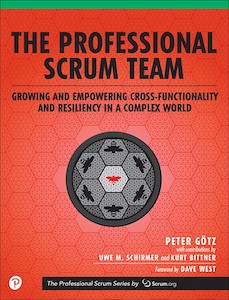While working with students in my classes or at my customers' teams I have experienced one thing over and over: the power of stories. In my work with Scrum Teams the important moments are usually not the ones where I explain some practice or tool, or we discuss one aspect of Scrum; the important moments are usually when someone tells a story that they experienced in the past that highlights an important learning. Why are stories so important for Scrum Teams and how can they help them navigate their way while solving complex problems?
Humankind has used stories to create social bonds and to teach important lessons from one generation to the next for some thousand years. Most people love stories, which is the reason why books, movies and television serials are in high demand and a popular topic of small talk. Stories let us empathize with the characters and let us share their experiences, but without having to go through their pain. Stories also create a shared understanding of values and principles, they talk about what behavior is helpful and accepted, and what behavior leads to failure.
Yet stories don't describe a strict rule set that you can and have to follow mechanically in an if-then-else way. Instead, they let us use our imagination and creativity to think about what might happen next, what we would or should do in this situation, and they help us connect the dots of cause and effect for a specific situation.
Scrum Teams operate in complex environments, where strict rules and best practices don't work; often they are even harmful as they don't take into account the special context of a situation. By using stories of significant challenges from the past to find strategies and ways to solve today's (or tomorrow's) problems, Scrum Teams can use the benefits described above.
If you are working in or with a Scrum Team, actively use stories to share important learnings from your past. Encourage your colleagues to do the same and create an environment where mutual storytelling becomes a common way to learn from each other.
We can use stories in very different ways in Scrum, some of which you most probably already know:
- Invite your users to share their stories; ask them to share stories of how they currently use your product to solve their problems; ask them to imagine how they would like to solve their problems if they had the perfect environment and tools; those are real User Stories.
- Use the Product Backlog refinement and the Sprint Planning to tell stories about your product as a Product Owner; share stories of what you plan to do in the near future and how that will change the lives and work of your customers and users;
- Share stories in your Sprint Retrospectives as a Scrum Team to talk about the highlights and challenges of the current Sprint and what helped you work with them or what might have helped you instead.
- Find the time in your Sprint outside of Sprint events to share stories; have lunch together as a team and share stories from work in other teams and other environments; meet as a team or in smaller groups at the beginning or end of a day (or week) to share your experiences and stories.
- And don't wait for the next 'official' chance to share stories; share them when you think they fit the situation.
Sharing stories lets you bond as a team, it helps you get a better idea of what options you have and what consequences they might bring.
Together with my colleagues Uwe Schirmer and Kurt Bittner, I have compiled a book that contains many of our own stories and those we experienced while working with customers and students: The Professional Scrum Team. Maybe they provide value to you. 
It would be great to hear your stories in the comments.
PS: I have a personal question: would you be interested to read stories shared by others? I am thinking about creating a website where people can share their stories about working with Scrum. If you think this would be valuable, please reach out to me.
